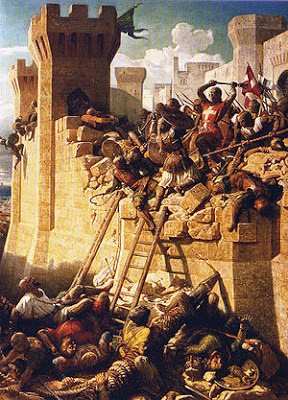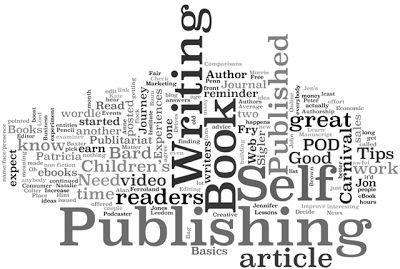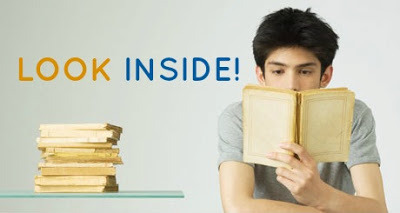Self-Published Authors: Liberators or Barbarians at the Literary Gate?

Is independent publishing a blessing or a curse? The answer to that question depends on whom you ask.
A few days ago, bestselling traditional author Michael Grant (the "Gone" series) typed up a post on his Facebook profile that started with the words, "I have never been a big Amazon hater. But that's starting to change." Interestingly, Grant's criticism didn't come from an author's standpoint, but rather from a reader's. His criticism dealt, specifically, with self-published works, and with the difficulty of wading through a lot of muck to get to the good stuff.
"I have absolutely nothing against self-publishing. In theory," Grant wrote. "But ... when I go to scan the bestseller lists at Amazon, looking for something to buy for my Kindle app, I can't get past the thickets of crap. Their lists are choked with junk product."
He decried what he called "absolute, unreadable shit."
Grant has a point. By opening the doors to every Tom, Dick and Harry-not-named-Turtledove who wants to publish a book, Amazon (and, to be fair, Barnes & Noble, Smashwords and a few others) has created a crowded playing field.
This isn't just a challenge to readers, though. It's also an irritant - or worse - to at least four other groups: 1) traditional publishers, 2) traditional authors, 3) literary agents and 4) independent authors who produce strong work but have a devil of a time differentiating it from what Grant refers to as "crappy" books. I like to think I fall into the fourth category.

It would appear that Amazon has seen the barbarians at the gates and thrown them (the gates, that is) open - all to maximize profits, of course. But before you condemn self-published authors as a bunch of hacks who are poisoning the inkwell of publishing, consider the alternative: a system in which good authors with good ideas are often shut out of the process altogether. This is precisely what traditional publishing has offered. Many publishing houses don't accept unsolicited manuscripts from unknown or unagented authors. I call those the three "uns."
It's the old conundrum of "you have to have experience to get a job, but you have to have a job to get experience." If Amazon has thrown open the gates to a populist revolution, the old guard has long bolted them shut to any number of deserving writers.
Grant admits this system is far from perfect, stating that traditional publishing's "reliance on agents is obnoxious" and calling it tantamount to "publishers saving money by screwing writers." But, he says, "that's a separate issue from what Amazon is doing."
I beg to differ. Both issues are part and parcel of the same question: "Who will act as a gatekeeper between the author and the reader?" Agents are part of the traditional gantlet of gatekeepers, a system that includes such mainstays as acquisitions editors, query letters, proposals, outlines, slush piles and so forth. You may be a great author, but if you've got no agent or your query runs afoul of some acquisitions editor, your manuscript will wind up in the scrap heap.

The new alternative is the self-publishing system, which, in contrast to traditional publishing offers nearly direct access to readers. It's the Protestant Reformation of publishing. Until recently, writers had few choices. They could submit their manuscript on the altar of one publishing house after another. Then, if they were fortunate enough to get a green light, they would wait a year or two more before seeing their books in print. Publishers and agents were the priests who held the keys to the kingdom of publishing heaven.
There was one other alternative: Authors could purchase the "indulgence" of a so-called vanity press.
Then, along comes Amazon and offers something analogous to what Luther called the priesthood of all believers - an authorhood of all readers.
But not quite all readers.
Before despairing that the barbarian hordes are about to inundate a bunch of defenseless readers with a profusion of bad writing, we should take our fingers off the panic button and step back for a moment. It takes a good deal of effort to write a book - even a bad one - and the vast majority of readers will never even attempt the task, so it's not as though everyone with a pen or a keyboard is going to be writing the next Greatly Flawed American Novel.
Grant asserts that "as a practical fact, 99% of what I've seen (from independent authors) is riddled with spelling errors, amateur-hour editing, formatting errors, and so on." I can't argue this, but only because I can't attest to what Grant personally has and hasn't seen. I suspect, however, that it's an exaggeration. Even if true, however, it doesn't present a true barrier to the consumer.

It's not as though most readers have to sift through every novel on Amazon to find something they like. They'll typically narrow it down by price, genre, cover art and a host of other factors before even considering a purchase. For those who do consider buying a book, Amazon provides a nice little feature called "Look Inside" that offers them an opportunity to sample many of the books on its site (it's on all of mine). It should be pretty clear within a page or two whether a book is poorly written. Heck, it's often apparent just from reading the description. Is that really too much effort?
I'm sure there are a few errors and typos in my books; then again, that's true of traditionally published books, as well. But I have no worries about inviting any prospective reader - including Michael Grant - to read my samples, and I'm confident such errors will be few and far between. (Incidentally, Grant is to be commended for offering access to fans via Facebook - that's something many traditional authors don't do.)
The self-publishing platform Amazon offers is far from perfect, and there are plenty of traditional publishers out there with a good eye for talent and worthy content. But the system they're using has been broken for a very long time. Here's hoping the self-publishing revolution will prompt the kind of changes that are needed to improve access and content for authors and readers alike, whether the future lies in traditional publishing, self-publishing, or some yet-to-be-explored middle ground.

Published on May 08, 2013 19:43
No comments have been added yet.



